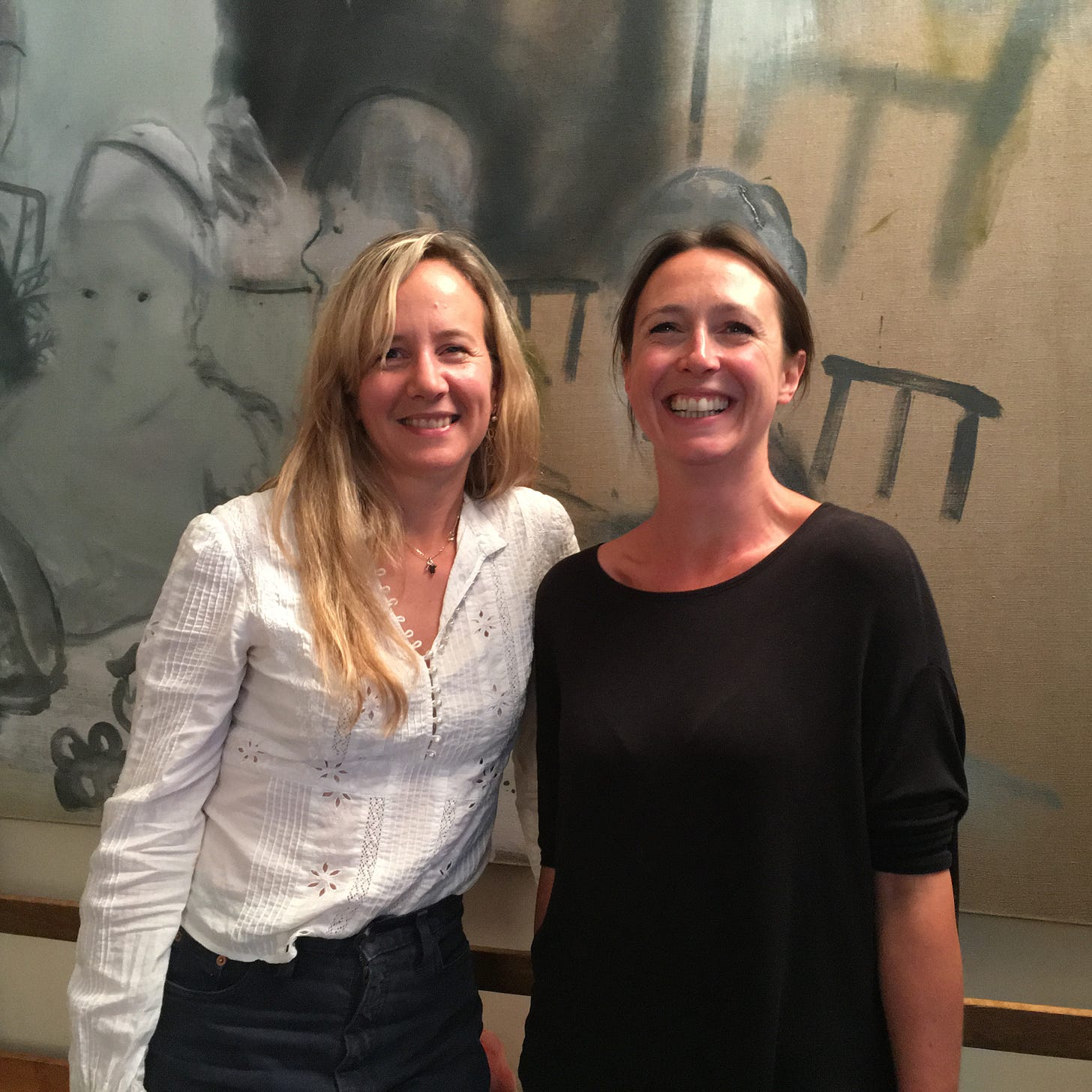Zoe & Lily on Writing
London Lit Lab: This is where the real experiments happen
London Lit Lab is run by authors Zoe Gilbert and Dr Lily Dunn. We started out as friends, and then decided to set up a creative writing teaching partnership around ten years ago. We did our first teaching gigs from a quirky cafe in Shoreditch where our keen students sat around a table and we fed them almond cake and tea. At the start me and Zoe taught our classes together, both bringing our very different interests and skills to the table, and then during the pandemic we put all our courses online and invited other writers to join us, extending out our expertise. For us, it is all about the writing and about building that community. You can find out more about our courses by clicking on the link above, or here.
We are so excited to have moved over to Substack, the most perfect place for us to set up our laboratory! We really hope you will put on your lab coats and join us with our writing experiments. We will be using this space to share our weekly thoughts and discoveries, any books we are reading, insights we have through our teaching. It will be a space for us to spread our wings, as well as a gift to you! We will also be telling you about the courses we are running, from Let’s Get Hybrid with Tania Hershman, through How to Write A Memoir Proposal with Lily Dunn and Short Story Goldrush with Ruby Cowling. You’ll be the first to know of any discounts on our courses, and we’ll also be sharing regular writing prompts and running an Accountability Club, a facilitated writing space where you can join likeminded people simply to write!
We are offering a free trial for the first three sessions of our Accountability Club taking place on Mondays 7-9pm (UK Time, GMT/UTC) for the remainder of February (12th / 19th / 26th). After a 10min casual chat at the beginning, the rest of our session is dedicated to silent private writing on whatever we’re working on at the moment. These online weekly sessions get us writing regularly in scheduled sessions where we have made the decision to prioritize and commit to writing. They also help us stay focused and motivated through the encouragement and social accountability of co-writing with other writers. Join us for our first 2hr session on the 12th of February via our Zoom link for all three sessions: https://us06web.zoom.us/j/88479915243 . If you have any questions, please get in touch with Ennis at ennis@londonlitlab.co.uk!
Zoe is an award-winning writer of folk-inspired fiction, known for its ambitious and inventive quality. Her books are Folk and Mischief Acts, both published by Bloomsbury. And I am a memoirist, more interested in the stories that define a life, and finding ways of making the everyday extraordinary. My debut memoir is Sins of My Father: A Daughter, A Cult, A Wild Unravelling (W&N), and my forthcoming book is Into Being: The radical craft of memoir and its power to transform (MUP, 2025). Our strength is in our difference, and in terms of our teaching we have all bases covered.
Zoe and Lily share their writing advice
Zoe: I tell people (and myself, sternly!) to write something, anything, first thing in the morning. Even if it’s one sentence, or less. Then whatever happens, you’ve spent a bit of time being a writer that day. Also, that sentence or thought will linger and your brain can work on it while you do other things. If you leave it until after work, it’s so much harder to do.
Lily: I won’t pretend that I write every day, but I will say that if you start the day with writing, however brief, it will be a good day. Early morning is the best time for me, because that bleary not-quite-awake state can produce some sweet words and insights, accessing buried places, a softer more authentic you. Early morning is a private time, a time to be yourself, a time to cherish, before the scattergun of the day begins: commute, work, children, housework, admin, social media, emails…
The other piece of advice I always come back to is something a family friend said to me when I was studying – or struggling to study – for my A-Levels, and that was: there are 24 hours in every day. You can be overwhelmed by all that needs doing, and overlook what it is that you want to do. You can put it off with excuse after excuse, but there are enough hours in the day.
Zoe: Another important thing to remember, however experienced you are, is to allow yourself to take risks in your writing, and to write badly. We all do it. You can’t write perfectly all the time, and certainly not on first drafts. Letting go, and remembering nobody has to see it if you don’t want them to, is helpful. When you’re able to show other people bits of your writing you know are bad, in order to get their help, that’s a huge relief! Nobody will judge you on a poor draft.
We would love to hear any of your words of wisdom…



I'm an owl. Best stuff happens when I've planned an early night, but things don't go according to plan...
Absolutely agree with you that mornings possess this nurturing writing magic! I always say to myself that a bad writing day is still a writing day.